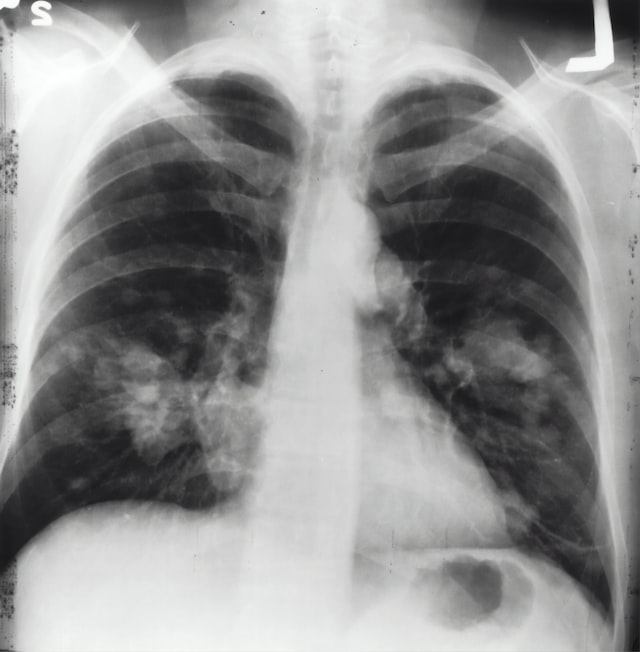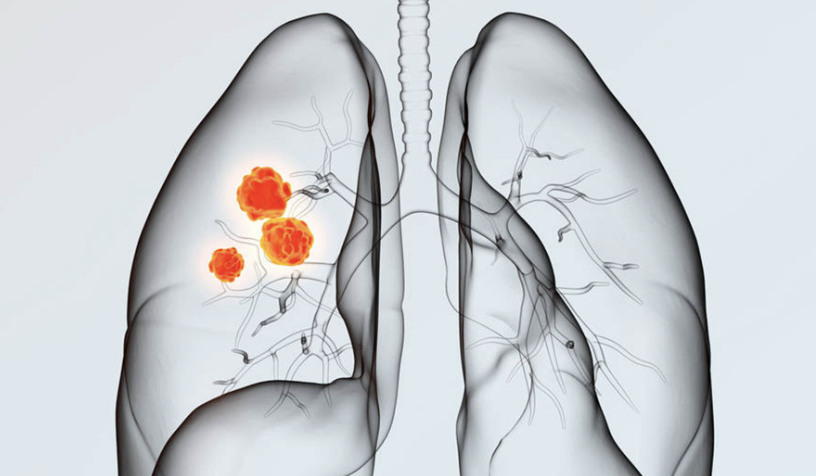A new clinical trial update shows that oxitinib (i.e. Teresa, or 9291) nearly doubled disease-free survival and halved post-operative recurrence rates in lung cancer patients carrying EGFR mutations at an early stage!

The researchers report that the updated results show that after a four-year follow-up period, the disease free survival rate in the axitinib group was 73% compared to 38% for patients in the placebo group.

The drug also halved the rate of cancer recurrence in patients compared to the placebo group, by 27% (ocitinib group) and 60% (placebo group). In addition, patients also had a reduced risk of cancer metastasis.
"One of the main benefits of this drug is that it has good brain penetration (can enter the brain to treat brain metastases) and is a true systemic treatment," said Dr Nicholas Rohs, assistant professor of oncology at the Icahn School of Medicine at Mount Sinai in New York City. "Usually, when lung cancer recurs, it tends to recur and metastasize in the brain, bones or other different organs where the lesions are more difficult to treat."
About 10 to 15 per cent of lung cancers in the US are driven by mutations in the EGFR gene, according to the American Lung Association. These patients often have little or no history of smoking.
EGFR is a protein on cells that helps them grow. EGFR mutations cause cancer by promoting uncontrolled cell growth.
Ocitinib, on the other hand, interrupts the effect of the EGFR mutation on cancer cells to act as an anti-cancer agent.
"Because of the presence of the EGFR mutation, there's a signal in these cancer cells that says grow, grow, grow, grow, grow, grow," Rohs said, "and we can block that signal with ocitinib and say, hey, stop telling the cells to grow out of control. "
The US Food and Drug Administration approved axitinib in 2018 for the treatment of patients with metastatic lung cancer driven by EGFR mutations.
The second clinical trial conducted with the drug was to determine whether ositinib could be used to help prevent the risk of post-operative recurrence in patients with early EGFR mutations.
"We've had considerable success with it in the metastatic lung cancer patient population," Rohs said. "When it turns out that certain drugs work well in difficult settings, we often try to see if there is a way we can apply the drug in the early stages."
In this study, nearly 700 patients with stage IB to stage IIIA EGFR-mutated lung cancer were randomly assigned to take 80 mg of oseltinib or placebo daily for three years.
The results of the trial were so good that the FDA approved oxitinib for early-stage lung cancer in 2020 after the initial study results were released early.
But clinical trials are continuing, and researchers want to know if oseltinib will continue to be effective over time.
The researchers, led by Dr Roy Herbst, associate director of the Yale Cancer Center in New Haven, Connecticut, published the assay online in a recent issue of the Journal of Clinical Oncology.
"Roughly speaking, the continued follow-up through the last two years basically shows that the previous findings were indeed correct," said Dr. William Dahut, chief scientific officer of the American Cancer Society.
The updated data from the trial also suggests that the side effects of oseltinib are manageable, experts said.
The more common side effects of oseltinib are diarrhoea, itchy or inflamed skin, cough or upper respiratory tract infection, plus suppression of blood cell counts.
"Patients actually took the drug for longer than they would have taken a placebo," Dahut said of the full trial results. "What this phenomenon tells us is that patients are more likely to tolerate recurrence by using a drug with some side effects than by taking a placebo, then having the cancer come back and then being treated again. So all in all, this maintenance treatment makes sense for patients.

Ocitinib is now the first-line treatment for EGFR mutation-driven lung cancer.
